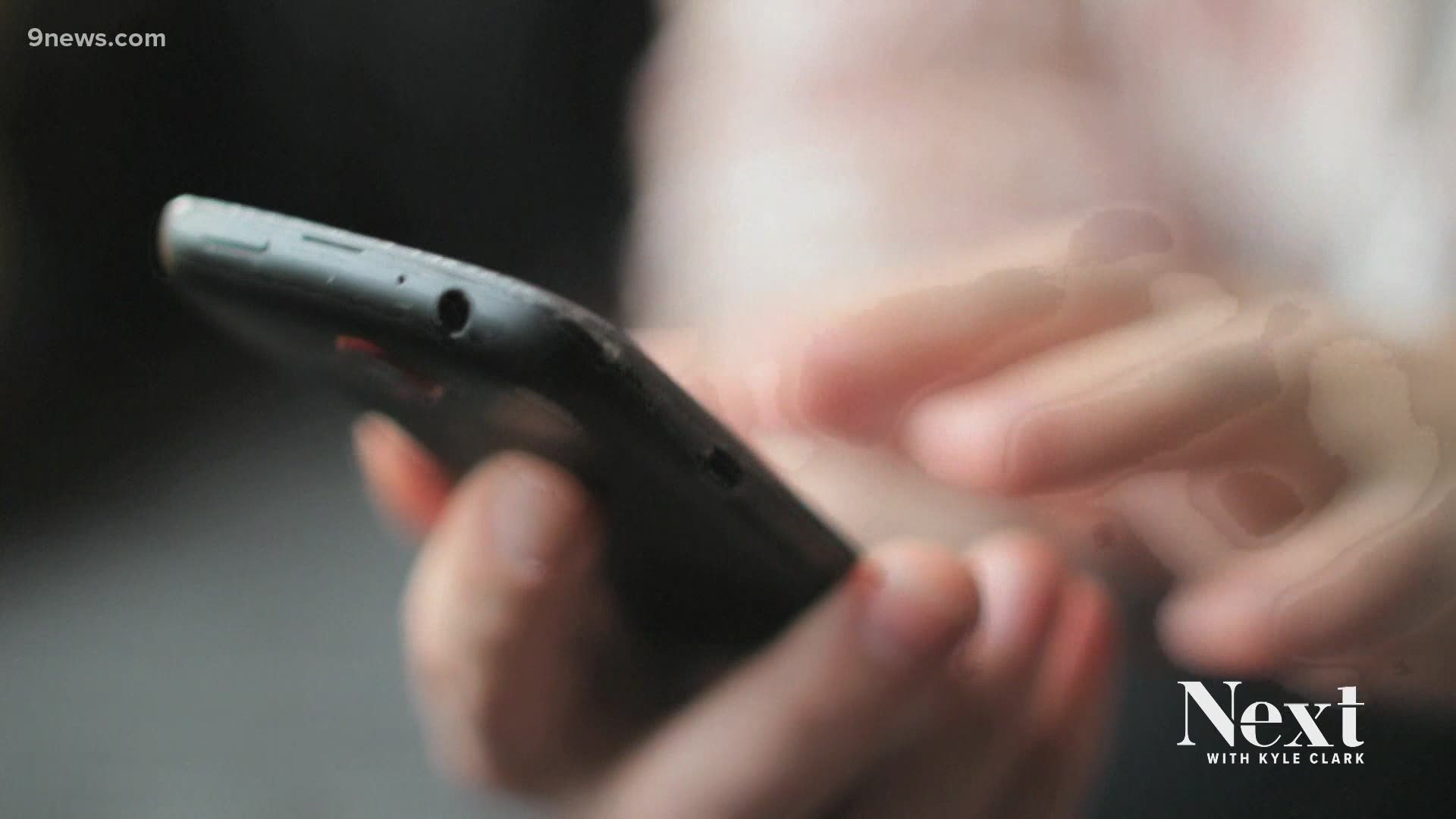DENVER — When Next with Kyle Clark explored how visitors are flocking back to downtown Denver faster than office workers, many of you questioned how the Downtown Denver Partnership, a chamber of commerce-like organization for downtown businesses, had access to cell phone data to track the movement of people in and out of downtown.
The graph, produced by the Partnership to show the progress downtown, was actually created by a company called Placer AI, an analytics firm. Placer AI aggregates anonymized location data through partnerships with more than 500 mobile apps, according to its website. A spokesman told Next the company aggregates that data from 30 million devices across the country to create an estimation of how many people travel in and out of a certain place.
It’s one of many different methods of data collection along the 16th Street Mall, including interactive kiosks that track the flow of pedestrian traffic using low-energy Bluetooth signals emitted by phones. The Partnership says the Bluetooth signals are anonymous as well.
“We allow lots of apps to get access to our location information GPS and those sorts of things…certain apps, maps, and those things don’t work unless you have the phone turn on GPS,” said Steve Beaty, chair of the Computer Science Department at MSU Denver.
“In general, many of these applications have location awareness, as it’s called and unless you turn it off, then those wide variety of apps are sharing your location data on an ongoing basis.”
Beaty said this kind of data collection happens all around us all day. He pointed to some billboards that read cellphone data and adapt their digital message for different times of day based on the traffic that passes at the time.
Many have asked how this type of data collection could happen without their consent. Chances are you already consented to it through a terms of service agreement and by selecting the option to allow an app to track your data.
“Legally and typically in these end-user license agreements, there are a lot of words to the fact that here is what we’re going to use your data for, yeah we are going to anonymize it in certain circumstances,” Beaty said.
He said if people are concerned about this, they should scrutinize the terms of service agreement when they download an app, and routinely check to see which apps are using location data.
“I don’t think most people are aware of all they are giving away for free,” he said.
SUGGESTED VIDEOS: Full Episodes of Next with Kyle Clark

